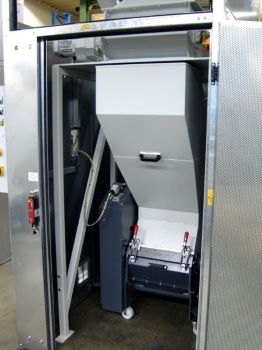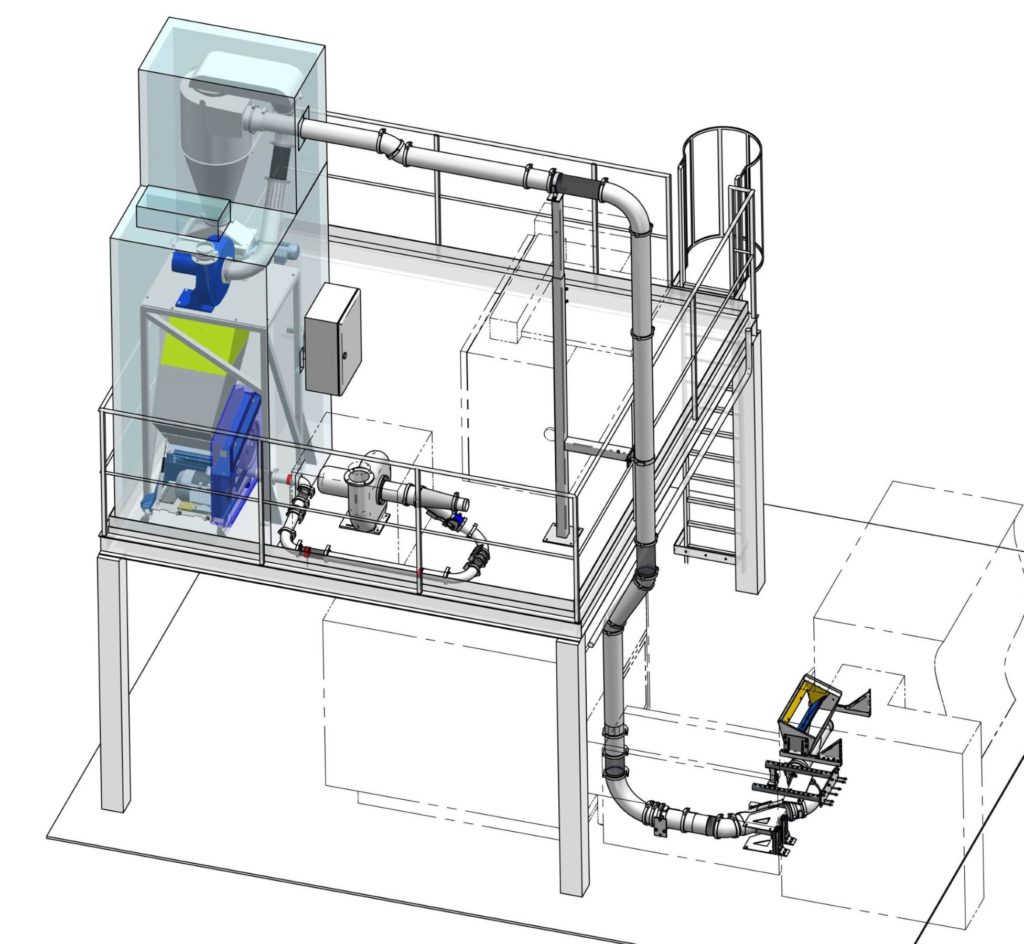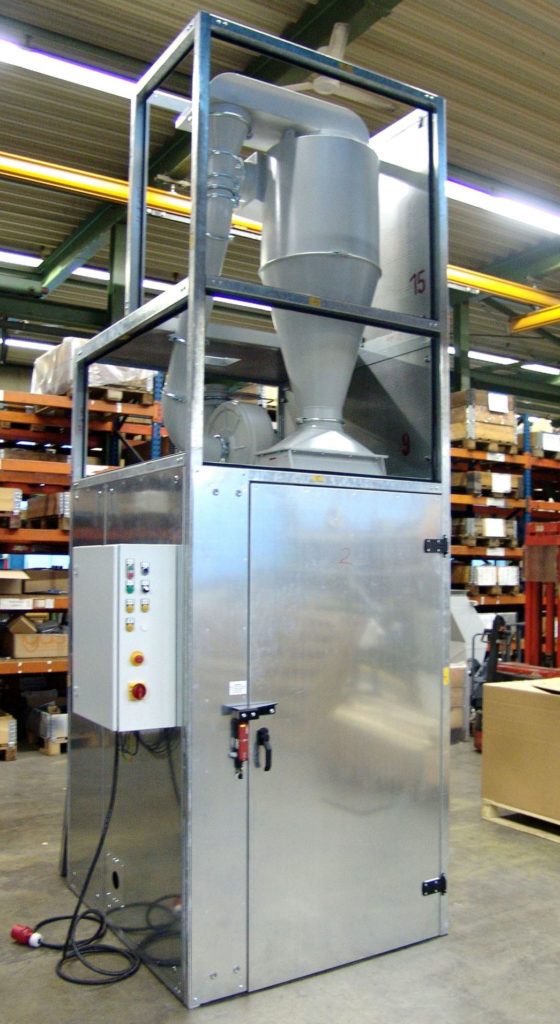Due to the process, large quantities of missing parts are produced during the high-speed thermoforming of espresso cups from multi-layer plastic foils. With process-integrated system solutions consisting of extraction and grinding technology, plant manufacturer Getecha ensures that this waste is removed directly from production and continuously recycled.
Of the approximately 1.200 coffee capsules produced by a modern thermoforming machine in 24 cycles per minute, a small percentage always remains in the die due to the process. Per cycle, this amounts to between two and five capsules made of multilayer plastic film laminate. These faulty parts are driven out of the die by tilting and brushing, sucked off, ground and finally fed to recycling or intermediate storage in a silo. To ensure that this disposal can be carried out in a process-integrated, continuous manner and without impairing production, plant engineering company Getecha developed a complete system solution consisting of an extraction unit, collection hopper, granulator and piping. It is currently being implemented in four versions for a large packaging manufacturer in the Netherlands.
Efficient and easy to maintain

The technical heart of these coffee capsule processing lines from Getecha are the granulators from the Aschaffenburg-based company’s RS 2400 RotoSchneider series.
Depending on the capacity of the thermoformer and the number of capsules produced – 50 or 70 cups per cycle – this can be an RS 2404 with a standard rotor speed of up to 390 min-1 or an RS 2406 with a customised rotor speed of up to 500 min-1.
Basically, these are scissors cut hopper granulators for hourly throughputs of up to 220 kg/h, which are often also used as central granulators. They have a highly efficient segment rotor with optimum cutting force distribution, an extremely maintenance-friendly housing design (toolless sieve removal, gas pressure spring opening of the hopper, etc.) and offer many possibilities for individualisation (rotor variants, wear protection, etc.).
In addition, Getecha offers the option of equipping the motor control of the mills with its innovative EnergySave function. This allows the energy consumption of the three-phase drives to be noticeably reduced without compromising performance.

At the Dutch coffee capsule producer, the granulators are mounted on elevated platforms above the thermoforming machines.
The GA 500-S extraction units from Getecha with their suction blowers, cyclones and rotary valves are also located here. The material to be ground is sucked in through a pipe about ten metres long, which leads from the thermoformer upwards to the second level to the feed hopper of the granulator. A cyclone is installed upstream of the hopper, which separates the faulty parts from the conveying air and feeds them via the rotary valve to the cutting chamber of the granulator.
The collection of the faulty parts from the thermoforming process takes place a few seconds after the missing parts have fallen from the die onto a conveyor belt and have been fed to a collecting hopper. This collection hopper – also a component of Getecha’s system solution – is designed at the customer’s request to allow easy access to the faulty parts via a flap. This allows the quality control department to inspect the process at any time.
Relaxed continuity

Even with fluctuating volumes or production peaks, Getecha’s coffee capsule granulation line ensures that faulty parts are detected both uniformly and completely directly at the thermoforming machine. Relaxed continuity in the ground material flow is ensured not only by the load-dependent control and the automatic fill level indication of the granulator, but also by the possibility of material buffering in the granulator hopper. A bypass pipe to the blower of the thermoformer can also be used to regulate the air volume for the extraction of the ground material from the granulator for further processing.
Thanks to the new coffee capsule granulation line from Getecha, starting up the thermoforming plant is also a relaxed affair: where previously a hectic back and forth with containers tied up the manpower of three or even four people, now a press of the start button is enough to start the automated suction and granulating machine. And as a contribution to improved ergonomics at the workplace, both the granulator and the extraction system have been given additional sound insulation.
The realisation of the four disposal lines for the Dutch coffee capsule manufacturer is a vivid case study of the diversified portfolio of plant manufacturer Getecha. It shows that the company is not only capable of modifying and configuring its granulators to customer specifications – for example, by selecting the rotors or drives – but that it can also cover a wide range of services in conveyor and material flow technology, exhaust air and dust removal technology, packaging technology (e.g. big bag systems) and control technology. Getecha therefore sees itself not only as a manufacturer of granulators, but also positions itself in the field of plastics processing as a process-oriented special machine manufacturer with extensive engineering and development qualities.
Press release April 2019
plastics technology / thermoforming / granulation technology / packaging technology / material flow
